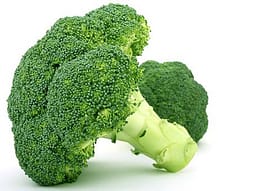
Sulfur burping is a gastrointestinal disorder that occurs when there is excess gas in the digestive system. Individuals suffering from this condition pass a gas that smells like hydrogen sulfide or rotten eggs through their mouths. This gas is mainly produced by bacteria that break down food. Excess air or gas can also enter the digestive system through the mouth. Sulfur can get trapped in your GI when you drink or swallow food too fast.Drinking soda or other carbonated drinks can also introduce excessive air to your stomach.
Infrequent burping is a common or normal experience, but frequent burping can make the affected person feel embarrassed. Again, it can be a sign of an underlying medical issue. Let’s have a look at the main causes of sulfur burps in detail.
Eating High-Sulfur Foods
The fouls smell of hydrogen sulfide gas is released when the body digests high-sulfur foods. Foods rich in fiber have a high content of sulfur. Some of the common foods rich sulfur include proteins (like dairy products, seafood, and eggs), processed foods, cruciferous vegetables (like kales and broccoli), and drinks (such as wines, sodas, and beers). People can avoid nasty burps by reducing the intake of these foods.
Gastro-Intestinal Disorders
Studies show that most people are affected by GI disorders such as spastic colon and irritable bowel syndrome during their lifetime. Some of the risky factors of these disorders include mental health issues, genetics, and gender. GI disorders are known for disrupting digestive microbes leading to the production of excess hydrogen sulfide. The common symptoms associated with irritable bowel syndrome or GI disorders include nausea, diarrhea, constipation, abdominal pain, and indigestion.
Taking a Heavy Dinner
Foods rich in fats, oils, and butter can trigger smelly burps. Studies show that these foods can stay in the stomach for a long time. This means that it takes digestive enzymes a lot of time to break down high-fat foods.
In addition to this, these foods tend to move slowly as they make their way through the colon, thus triggering the gut bacteria to produce smelly gases by-products.
Parasitic Infections
There are some parasites that interfere with the genes of the gut bacteria. Keep in mind that these are the bacteria that regulate the level of hydrogen sulfide in the digestive tract. Altering the genes of these basters can increase the level of hydrogen sulfide, thus leading to excessive burping.

